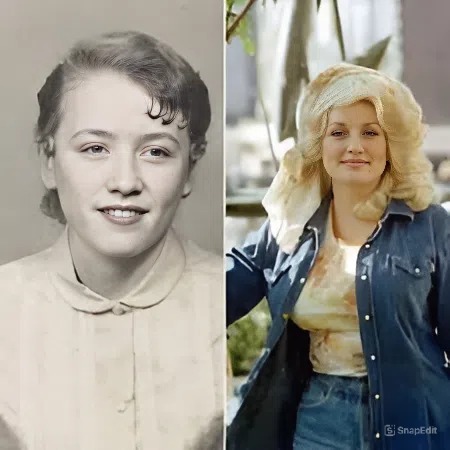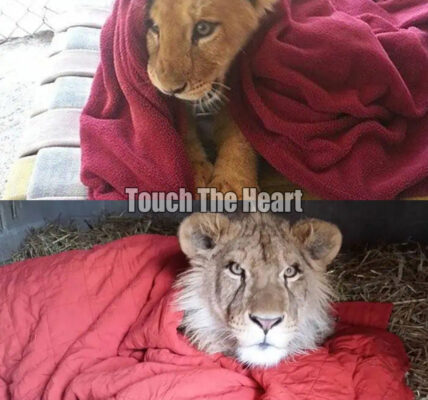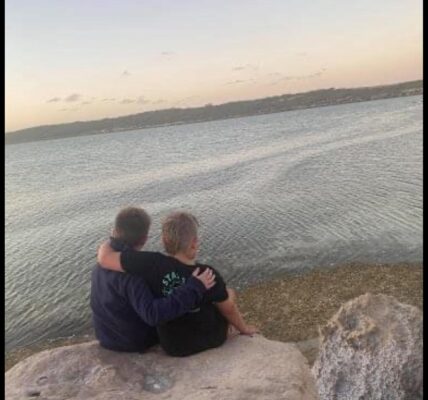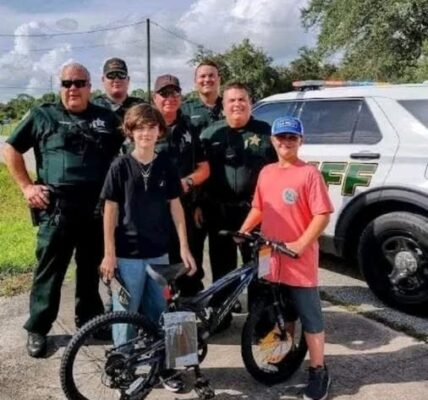From a Smoky Mountain Cabin to Global Stardom — The Untold Story of Dolly Parton’s Humble Roots and Boundless Heart.

Before the world knew her as a country music legend, a glamorous icon, and one of the most generous philanthropists alive, Dolly Parton was just a barefoot little girl in the Smoky Mountains of Tennessee, learning how to dream in a place where dreams seemed impossibly far away.
She was born in 1946 in a one-bedroom log cabin in the tiny community of Locust Ridge. The cabin—humble, drafty, and lit by the glow of oil lamps—housed all fourteen members of the Parton family. Dolly was the fourth of twelve children, and there was simply no room for luxuries like privacy or personal space. The older kids were expected to pitch in, and from an early age, Dolly helped care for her younger brothers and sisters. Nights meant crowding into beds three or four children at a time, with homemade quilts for warmth and siblings’ elbows for company.
Her father, Robert Lee Parton, was a sharecropper, working the land for a small share of the crops he harvested. He was a proud man who worked from dawn to dusk, even though he could not read or write. Her mother, Avie Lee, was a singer and storyteller who filled the home with music and faith, even when there wasn’t enough food to fill their stomachs.
Life in the mountains was beautiful, but it was also hard. The children bathed in the cold waters of the nearby river because there was no indoor plumbing. The cabin’s walls could barely contain them, so they spent most of their waking hours outside—playing, exploring, helping with chores, or listening to their parents’ stories. The outdoors was not just their playground, but an extension of their home: a place for shared meals, laughter, and the kind of simple joy that comes from making the most of what you have.
Dolly’s family had little in terms of material wealth, but they were rich in music. She grew up singing in church, harmonizing with her siblings, and picking out melodies on a homemade guitar her uncle fashioned from scraps. Those early songs were her escape and her hope—a way to imagine a bigger life without losing touch with where she came from.
When Dolly finally found her way to Nashville and began building her career, she carried her mountain roots with her like a badge of honor. She never hid her humble beginnings; in fact, she often spoke openly about them. She understood poverty because she had lived it—sharing beds, going without, and watching her parents work themselves to exhaustion to keep the family afloat.
And when fame and fortune finally found her, Dolly didn’t simply enjoy the fruits of her success—she gave them away. She built an empire not just of music, but of kindness. Her Imagination Library program has gifted more than 200 million free books to children worldwide, inspired by her father’s inability to read. She has donated millions to disaster relief efforts, from rebuilding homes after wildfires in her beloved Tennessee mountains to aiding flood victims in faraway states. She has funded countless scholarships, supported music and arts education, and even helped finance the development of a COVID-19 vaccine with a $1 million donation.
Fans love Dolly for her unmistakable voice, her sharp wit, and her signature rhinestone-and-sequin style. But they love her most for the woman she’s always been—the girl from the Smoky Mountains who never forgot where she came from, who understands the power of giving because she knows the pain of going without.
Her story is more than just a rise to fame; it is a testament to the fact that compassion grows deep roots in humble soil. From a cramped cabin with no running water to a stage that spans the globe, Dolly Parton’s journey proves that greatness is not measured by wealth, but by how much of yourself you give to others.




